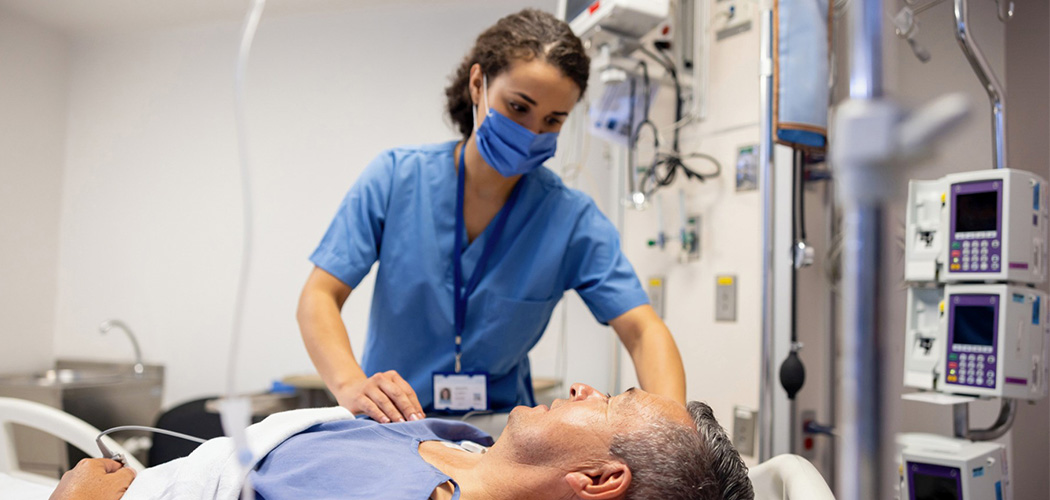Optimising ward nursing physical assessment to detect early changes and trends in patient condition can enhance hospital safety, new research shows.
The approach re-focuses nursing assessment from routinised patient observations of vital signs to purposeful and ongoing physical assessment.
“Although hospital rapid response systems for rescuing deteriorating patients provide a safety net, detection of clinical deterioration depends on nursing assessment on the ward,” said study lead Professor Clint Douglas of the QUT School of Nursing and Metro North Health.
The evidence-based nursing core assessment (ENCORE) trial study is published in the International Journal of Nursing Studies.
The large-scale participatory study led by QUT involved the development of evidence-informed and specialty-specific models of nursing assessment and ward re-design to embed practice changes at the ward level.
“In this study, we examined how providing ward staff with the capabilities to assess and act upon early changes in patient condition could prevent the need for rescues in the first place,” said Professor Douglas.

Skilled facilitation for 12 months on intervention wards, enabled a collaborative and participatory process of ward-level change that strengthened proactive nursing surveillance.
“The ENCORE trial represents a large collaborative effort to rigorously evaluate, for the first time, the impact of strengthening nursing physical assessment at the ward level on patient safety outcomes,” said Professor Douglas.
The study analysed 29,385 patient admissions in 29 general wards across five major Australian hospitals, in partnership with Metro North Hospital and Health Service and St Vincent’s Health Australia.
“We found that the ENCORE intervention appears to have redistributed medical emergency team response effort to where it was needed most,” said Professor Douglas.
“The study found there was a 40% lower rate of medical emergency team rescues and lower risk of mortality among patients with no comorbidities on intervention wards.
“But among at-risk patients with multiple comorbidities, nurses on intervention wards mobilised a higher rate of medical emergency team rescues and intensive care admissions.
“The outcomes show how optimising the contribution of ward nursing physical assessment for early changes and trends in patient condition would enhance hospital safety.”
The ENCORE trial and its results represent how sound clinical care and early observation minimises the risk of deterioration and enables great care, teamwork, and positive patient outcomes, said Adjunct Professor Alanna Geary, Metro North Health.
“Nurses at the bedside are best placed to identify clinical change and the ENCORE trial, has demonstrated what many of us have always known.”
The ENCORE trial was a successful model of academic engagement and partnership with hospital staff to transform health services with large-scale acute hospital research on systems change and patient safety, said Professor Douglas.
“This research began as a clinical–academic partnership established around a shared concern of nursing physical assessment practices on general wards and delayed recognition of clinical deterioration.
“The development and successful delivery of this complex intervention facilitated at the ward level demonstrates the importance of proactive nursing surveillance, and that nurses save lives.”








